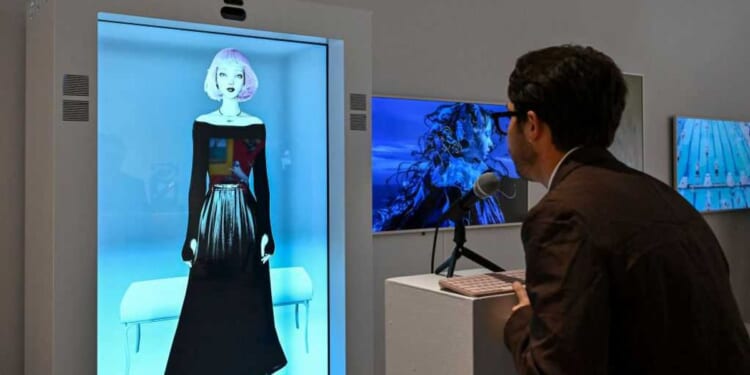Hollywood talent agencies are about to sign their first AI (non-human) actor-entity.
The AI entity seducing the film industry goes by the name of Tilly Norwood. Tilly is the creation of Eline Van der Velden, herself a human actress/comedian. Van der Velden seems to be more than happy to play the role of bridge between the film executive looking to save money and the technologist looking to provide cost-saving solutions in the form of digital representations on-screen. Van der Velden has sought for some years now to facilitate the corporate-technological gap within the film industry. Mission accomplished.
In the music industry, where life has never been the same since Napster, the ravages of tech are well known, and the response to AI reflects it. Spotify is rejiggering its algorithm to allow for select, curated AI music applications to flow on its platforms. Spotify has signaled that its policy revisions will target AI impersonation, spamming of the algorithm by AI slop producers, and, most notably, steps toward an international standards agreement regarding disclosure of AI content.
This role — creating fake people to act out what used to be a soulful calling for humans — we could call ‘non-human avatar technician.’
Spotify moving to increase its protections and analysis with respect to AI music is a great step. Maybe we’re winning. Somewhere in the corporate cloud are human ears listening to human voices crying for authenticity. Spotify’s latest forays into adjusting the relationships between these digital entities and humanity will provide an initial template for other corporations to build on. Wise human feedback must be incorporated as the process of adjustment proceeds.
Before we start slapping each other on the back, a nagging question: Why did the premier AI corporations roll out the creative stuff first? Why not remake HR, or paralegals? Maybe it’s too conspiratorial, but one wonders if it’s an example of “little Suzie, do you want peas or carrots?” Which is to say, if we avoid the AI ultra-slop in the arts, can we, human beings who live here on planet Earth among other humans, mitigate the creep toward the managerial, juridical, and religious AI slop flood? We better.
Conspiracy theorists of old used to talk about divide and conquer with reference to the unfolding forces (or secret agents) of history, and it’s hard to avoid seeing the way that the left is divided from the right with respect specifically to art and technology. In this latest reassessment, Spotify removed 75 million fraudulent songs. Not bad. This substantiates, to some degree, the company’s genuflection toward the sanctity of the art and the artist. Still, the company’s history and the pressures of making “number go up” suggest that audiences and critics should remain vigilant.
RELATED: A penguin avatar will be the new leader of a Japanese political party
Photo by Bloomberg / Contributor via Getty Images
Neko Case, the powerhouse PNW singer/songwriter (one given to voicing the occasional lefty political opinion), recently lamented of her latest album: “I had the privilege of making this record in a studio and maybe got the last advance anybody’s ever gonna get. And so I wanted to make sure all the sounds on the record were made by real people.”
We can imagine, and the discourse will soon provide, some lukewarm verbiage-gruel smeared over the only mildly interesting notion of AI fronting for an artist. “Puppeteer” simply wouldn’t do to substantiate the recursive pretension required to float a profession that (if it takes off) is just corporate and tech logic merging to feed the maw of public appetite for jejune psychic diversion. This role — creating fake people to act out what used to be a soulful calling for humans — we could call “non-human avatar technician” and stem the otherwise inevitable flow of false accolades.
There are many who say of this moment that AI and the intensity of investment ($500 billion from the U.S. government, as one example) suggest merely another financial bubble that, much like previous bubbles, is preceded by a massive fear of missing out. There’s some of that FOMO involved in this latest swing from Hollywood executives and music industry decision-makers. There’s a sense that they don’t know what’s next. Which isn’t surprising, because all such executives have ever known is how to buy true creative talent. Is AI true creative talent? Nope.
Hollywood needs to do what it can to limp along. Artists such as Case, despite whatever ideological or political differences they may have with Christians (and there are plenty), will need to look toward firmer spiritual ground if they hope to avoid total obliteration. For now, the audiences prefer human hands on instruments and genuine human vision in their storytelling. If the battle comes down to corporate costs vs. customer preference, however, we may need to begin looking at other options soon.

















